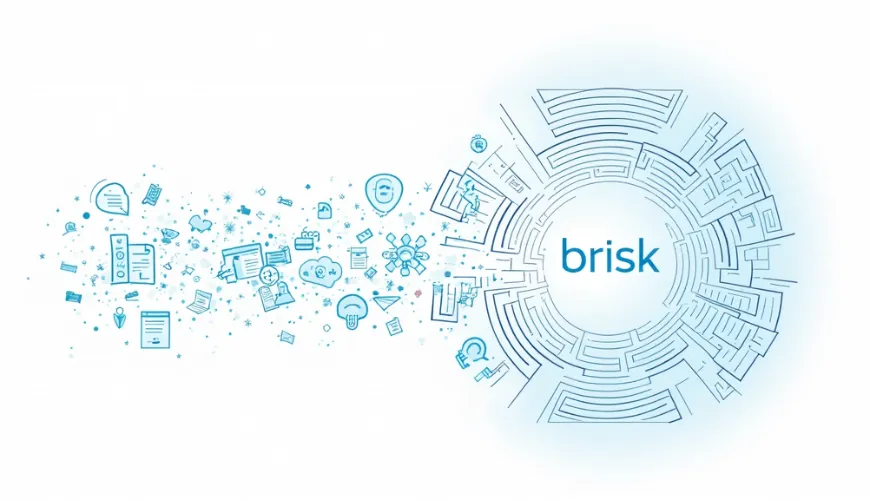TL;DR
Scholar GPT is an AI-powered research assistant designed to help students and academics streamline their workflow.
It simplifies complex academic tasks like literature reviews, citation formatting, and summarizing large papers.
With tools like ScholarGPT, you can save hours and focus more on idea generation and critical thinking.
If you've ever spent hours digging through academic papers, formatting citations, or struggling to make sense of dense research, you're not alone. Enter Scholar GPT, an AI-driven assistant changing how students, researchers, and educators tackle scholarly work. Whether you're pursuing a PhD, writing a thesis, or preparing a research proposal, ScholarGPT can help you save time, boost productivity, and improve the quality of your output. In this post, we'll dive deep into how this tool works, what it offers, and how you can use it effectively for your academic needs.
What Is Scholar GPT?
Scholar GPT—also known as ScholarGPT or "GPT for scholars”—is a specialized version of a large language model designed to support academic and educational tasks. It combines the power of AI with a deep understanding of research methodologies, academic formats, and scholarly communication.
While general-purpose AI tools like ChatGPT are useful, Scholar GPT goes a step further by tailoring its responses to academic standards. That means better citation practices, more accurate summarization of articles, and responses that reflect domain-specific expertise.
How It's Different from Regular Chatbots
Most chatbots give generic answers, whereas Scholar GPT is tuned for academic contexts: it understands discipline‑specific jargon, produces properly formatted citations (APA, MLA, Chicago, etc.), summarises peer‑reviewed literature with inline references, and even guides you through structured documents such as theses or systematic reviews. In short, it behaves like a domain‑expert rather than a general chatbot.
Key Features of Scholar GPT
Scholar GPT isn't just a glorified search engine. It offers several smart features that assist throughout the research process.
1. Literature Review Support
ScholarGPT can scan through lengthy abstracts and bodies of research, pulling out key themes and findings. Instead of skimming through dozens of articles, you can ask it to summarise findings around a specific topic like "climate change and coastal erosion.” For hands‑on data‑visualisation ideas, see our guide to AI Map Generator.
2. Smart Citation Generator
Whether you need APA, MLA, Chicago, or another format, Scholar GPT can generate citations from DOI numbers, URLs, or even partial references. Just feed it a journal name and author, and it can often complete the citation for you.
3. Summarizing Dense Texts
If you've ever had to read a 30-page article and didn't know where to start, Scholar GPT is your shortcut. Paste the abstract or main body, and it can give you a concise summary, often highlighting methodology, results, and implications.
4. Question Answering for Academic Topics
Use Scholar GPT like a tutor. Ask something like: "What is the difference between grounded theory and phenomenology?”—and you'll get a scholarly, well-structured explanation.
5. Plagiarism-Resistant Writing Assistance
ScholarGPT can help you phrase ideas in original ways. It doesn't pull from a database of student essays but instead generates content based on patterns in scholarly writing.
Real-World Use Cases
Here's how Scholar GPT is being used across different academic levels and fields:
Undergraduates
Students writing term papers often use ScholarGPT to generate outlines, understand complex theories, or auto-format citations. For instance, a psychology student struggling with APA format can get on-the-spot help generating accurate references.
Graduate Students & PhDs
When time is scarce, Scholar GPT is a lifesaver for lit reviews or chapter drafts. One PhD student shared how they used it to summarise 15 papers in an afternoon—a task that normally takes days (see our experiment with OpenAI Internship prompts for similar speed‑ups).
Educators
Teachers and professors use ScholarGPT to prepare lecture notes, quiz questions, or even to explain complex topics in simpler language for students.
Researchers
For postdocs and research fellows, the tool assists with synthesizing findings, preparing grant proposals, and even checking if a hypothesis has been previously tested.
How Scholar GPT Enhances Research Productivity
Academic productivity isn't just about working harder—it's about working smarter. Scholar GPT helps you do just that.
Time-Saving Workflow
Instead of juggling multiple browser tabs, citation managers, and PDF readers, you can centralise much of your research process in one AI‑driven interface—similar to how we streamline creative drafting in the AI Fantasy Art workflow.
Improved Accuracy
Since Scholar GPT is built on models trained with academic datasets and enhanced using citation-aware functions, it reduces human error—especially in citation formatting and summarization.
Collaboration Made Easier
When working in teams, Scholar GPT can act as a shared assistant. You can use it to draft sections of a paper or clarify concepts during group study sessions.
Consistent Writing Style
ScholarGPT can help you maintain a consistent tone and structure throughout lengthy documents. Ask it to rewrite sections using a certain voice or standard, and it will match the rest of your work.
Scholar GPT vs Other Academic Tools
Several tools aim to help with academic tasks, but Scholar GPT brings a unique combo of flexibility and intelligence.
| Feature | Scholar GPT | Grammarly | Zotero | ChatGPT |
|---|---|---|---|---|
| Citation Generation | ✅ | ❌ | ✅ | ✅ (limited) |
| Summarizing Research | ✅ | ❌ | ❌ | ✅ |
| Academic Writing Help | ✅ | ✅ | ❌ | ✅ |
| Domain-Specific Answers | ✅ | ❌ | ❌ | ✅ (less accurate) |
As the table shows, Scholar GPT covers more academic-specific features in one place compared to other tools.
Ethical Considerations and Future Road‑map
The rise of AI‑assisted scholarship raises inevitable questions about authorship, bias, and responsible use. Scholar GPT can retrieve DOI metadata to speed up referencing, but it does not yet perform automatic cross-verification against CrossRef records, so users must still verify primary sources before publication. Looking forward, developers have discussed adding optional hooks to external databases such as arXiv and a dedicated methodology-explainer mode for complex equations, but these features are not yet scheduled for public release. These upgrades align with the principles outlined by the Stanford HAI policy brief on trustworthy generative AI, reinforcing Claila's commitment to academic integrity.
Moreover, Claila's dev team is piloting an opt‑in attribution ledger: each AI‑generated paragraph can be traced to its prompt history, making collaboration transparent for co‑authors and journal reviewers alike. Such features ensure that, rather than replacing scholars, Scholar GPT augments human creativity while preserving rigorous standards.
Scholar GPT on the Claila Platform
Claila offers access to Scholar GPT along with other top-tier models like ChatGPT, Claude, and Mistral. What sets Claila apart is its user-friendly interface, affordable pricing, and multi-model access, giving users the flexibility to choose the best AI for their task.
Why Choose Claila?
Here's what makes Claila the ideal platform for using GPT academic research assistants:
- Multiple AI models in one place – switch between ChatGPT 4o, Claude 3 Haiku, Scholar GPT, and more without juggling tabs.
- Optimised academic templates – ready‑made prompts for literature reviews, lab reports, and grant proposals.
- Built‑in image generation – create charts or concept visuals for conference posters in seconds.
- Continuous model updates – Claila pushes weekly prompt‑tuning tweaks so Scholar GPT stays citation‑aware and up‑to‑date.
Using Scholar GPT on Claila means you're tapping into a productivity ecosystem that covers all your academic needs in one dashboard. Claila's pricing is refreshingly simple – the Free plan includes up to 25 AI messages per day and three PDF chats (≤ 25 MB or 100 pages each), while Claila Pro costs just USD 9.90 per month, removes those limits, and unlocks ChatGPT 4o, larger context windows, and, for Pro users, an optional zero-retention mode (currently in public beta) that deletes all prompts immediately after completion.
Tips for Getting the Most Out of Scholar GPT
Use specific prompts, double‑check citations, supply plenty of contextual information, and always blend AI output with your own editing. For example, ask "Summarise the key findings and real‑world implications of this article for environmental policy” rather than a generic "Summarise this article,” then verify the generated references in Google Scholar and refine the wording so it matches your voice.
Limitations to Keep in Mind
Despite its strengths, Scholar GPT isn't flawless; cross‑checking with plagiarism‑resistant tools such as the Zero GPT detector is still sensible. Here are a few things to watch for:
- Occasional hallucination of facts—always verify scientific claims.
- Outdated references depending on the model's training data.
- Lack of access to paid journals, unless you provide the content.
Still, these downsides are minor compared to the boost in productivity and clarity ScholarGPT brings to the table.
Scholar GPT: The Future of Academic Work?
As generative AI continues to evolve, tools like Scholar GPT are becoming indispensable in academic settings. From simplifying research to assisting with academic writing, they're changing how knowledge is created and consumed.
According to a March 2024 Nature Briefing report — AI & robotics briefing: GPT-4 can hack websites without human help — a 2023 survey found that roughly 30 % of scientists have already used generative-AI tools to help write manuscripts. Scholar GPT is ahead of the curve by offering an academic-first approach to AI assistance.
If you're a student, educator, or researcher looking to work smarter—not harder—now's the perfect time to give it a try.
Ready to transform your academic workflow?



